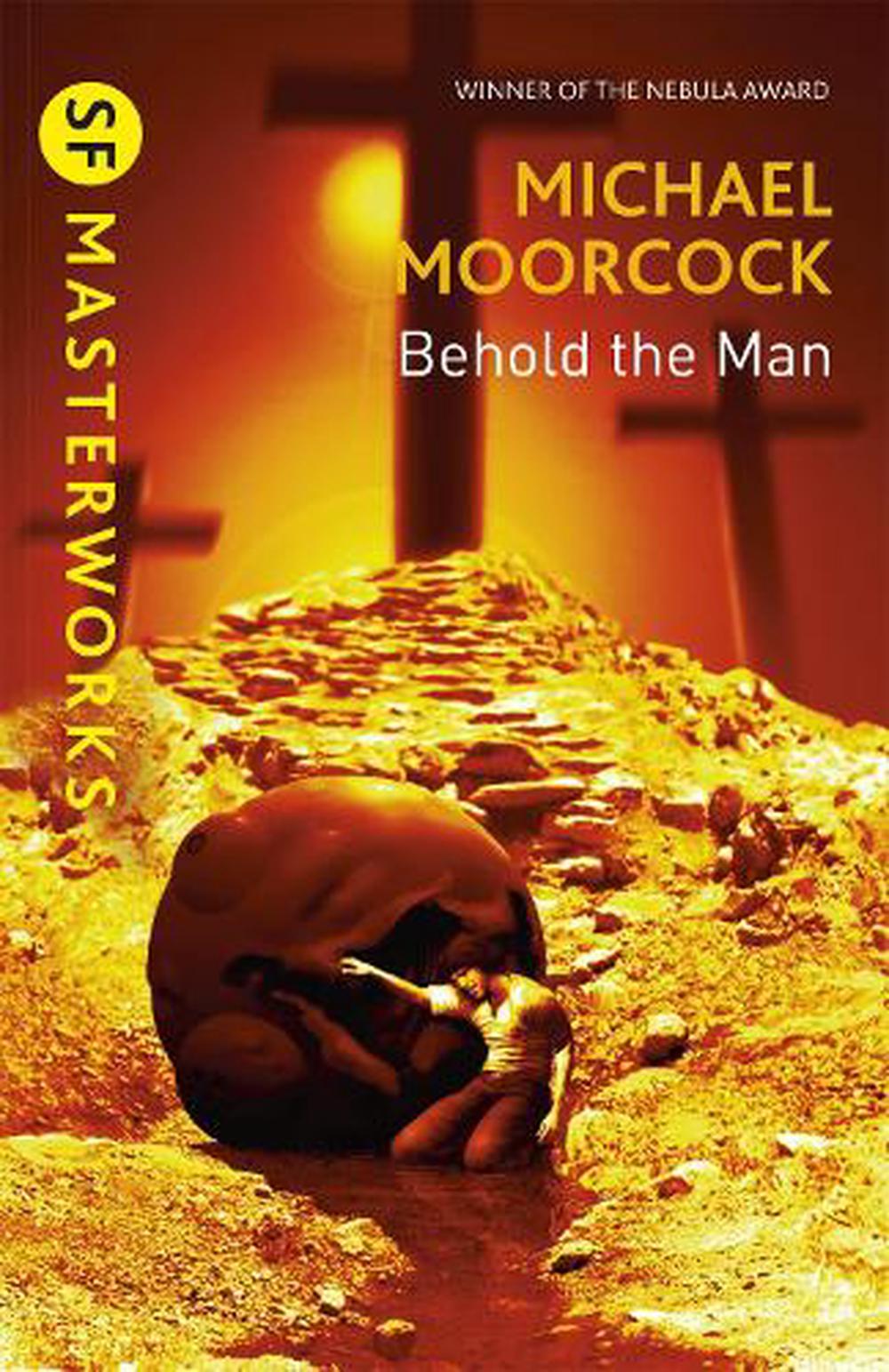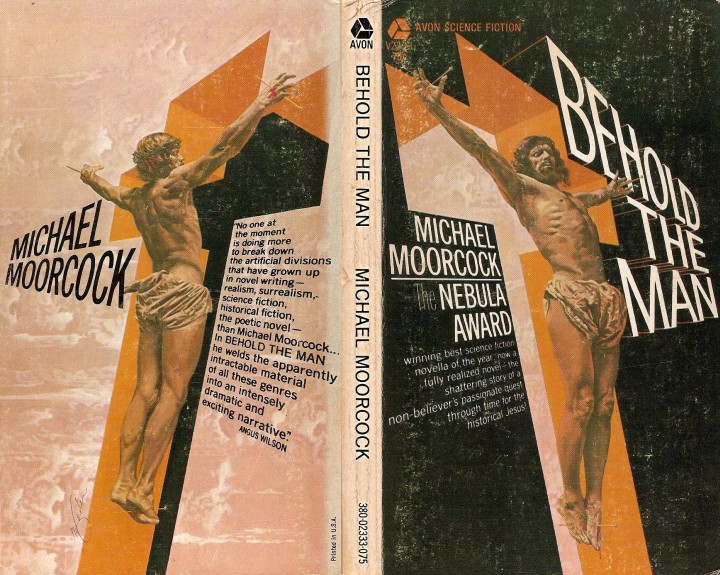


He then makes his way to Nazareth in search of Jesus. When he asks Karl to baptise him, however, the latter panics and flees into the desert, where he wanders alone, hallucinating from heat and thirst. Since the Essenes witnessed his miraculous arrival in the time machine, John decides Karl must be a magus, and asks him to help lead a revolt against the occupying Romans. John the Baptist and a group of Essenes find him there, and take him back to their community, where they care for him for some time. Karl, badly injured during his journey, crawls halfway out of the time machine, then faints. In the story, Karl has chronic problems with women, homosexual tendencies, an interest in the ideas of Jung, and many neuroses, including a messiah complex. By interpolating numerous memories and flashbacks, Moorcock tells the parallel story of Karl's troubled past in 20th century London, and tries to explain why he's willing to risk everything to meet Jesus. The story begins with Karl's violent arrival in the Holy Land of AD 28, where his time machine, a womb-like, fluid-filled sphere, cracks open and becomes useless. In the novel, Moorcock weaves an existentialist tale about Karl Glogauer, a man who travels from the year 1970 in a time machine to 28 AD, where he hopes to meet the historical Jesus of Nazareth. The title derives from the Gospel of John, Chapter 19, Verse 5: "Then Jesus came out, wearing the crown of thorns and the purple robe. It originally appeared as a novella in a 1966 issue of New Worlds later, Moorcock produced an expanded version which was first published in 1969 by Allison & Busby (one of the first books published by the company). If you don’t mind Moorcock playing with basics of Christianity, then you might well find it interesting.Behold the Man (1969) is a science fiction novel by British writer Michael Moorcock.

It’s an easy read, actually: I read it in about an hour. Really, it toys with ideas of identity, predestination, time loops, etc. The time travel aspect isn’t very prominent, and I don’t think it was really written as science fiction - speculative fiction, yes, but I wouldn’t call it sci-fi. In a way, it suggests the power of the Christian message: the pure message survives even through a human being’s selfishness and fallibility. Still, I think it’s a very interesting way of looking at the story, even if I don’t like the way it portrays Christianity. Worse, the figure who becomes Jesus is not altruistic, but self-absorbed and narcissistic. Certain people might find it offensive because it undermines the sanctity of Jesus Christ, and tangles that story up in a lot of sexual and mental health hangups. Moorcock’s Behold the Man is entirely different to his Elric books, or Gloriana, or anything else of his I’ve come across so far.


 0 kommentar(er)
0 kommentar(er)
